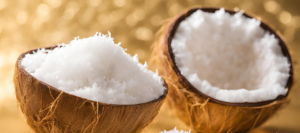India’s Coconut Renaissance: Exporting Innovation and Tradition

India’s abundance of natural resources and centuries-old coconut farming traditions have made it a leading exporter of mature coconuts and coconut byproducts. With its tropical climate and rich soil, the country is home to lush coconut plantations, producing a wide range of high-quality coconut products that are sought after worldwide.
In recent years, India has witnessed a coconut renaissance, driven by a combination of innovation and a deep-rooted respect for tradition. This article explores how the country’s coconut industry has evolved and the growing demand for Indian coconuts globally.
A Brief History of Indian Coconuts
The coconut tree, known as the “Tree of Life,” has been deeply intertwined with Indian culture for centuries. Its versatile fruit has been used for everything from cooking to skincare and religious ceremonies. Coconut farming has traditionally been a major occupation in coastal regions, particularly in the southern states of Kerala, Tamil Nadu, and Karnataka.
Exporting Excellence: Why Indian Coconuts Lead the Market
Superior Quality: Indian coconuts are known for their exceptional quality, attributed to the country’s favorable climate and skilled coconut farmers. The fertile soil, ample rainfall, and abundant sunlight contribute to the growth of mature coconuts with a rich flavor and high nutritional value.
Diverse Range of Products: India’s coconut industry offers a vast array of products beyond the fresh coconut itself. These include coconut oil, coconut milk, coconut water, desiccated coconut, coconut flour, and coconut-based snacks. The versatility of coconuts has spurred innovation and encouraged the development of new products to cater to diverse consumer preferences.
Environmental Sustainability: Indian coconut farmers have a deep respect for their land and follow sustainable farming practices. With a strong emphasis on organic farming and minimal use of chemicals, Indian coconuts are highly regarded for their environmentally friendly production methods.
The Growing Demand for Indian Coconuts Worldwide

India’s mature coconuts and coconut byproducts have gained popularity globally due to their exceptional quality and nutritional benefits. Here are some reasons why Indian coconuts are in high demand worldwide:
Nutritional Powerhouse: Coconuts are rich in essential nutrients and healthy fats that offer numerous health benefits. They are a great source of vitamins, minerals, and antioxidants that support a healthy immune system, improve digestion, and promote heart health.
Versatile Culinary Ingredient: Indian coconuts are widely used in cuisines around the world, adding a unique flavor and texture to both sweet and savory dishes. From curries to desserts and smoothies to stir-fries, coconuts are a popular choice for culinary enthusiasts.
Natural Beauty and Wellness: The natural properties of coconuts have made them a preferred ingredient in the beauty and wellness industry. Coconut oil is renowned for its moisturizing and nourishing properties, benefiting hair and skin health. Additionally, coconut water is a refreshing and hydrating beverage that has found its way into the fitness and wellness market.
Eco-conscious Consumers: With increasing awareness about sustainability and the environmental impact of products, consumers are actively seeking out ethically sourced and eco-friendly options. Indian coconuts, with their organic farming practices and minimal carbon footprint, align with the values of eco-conscious consumers.
India’s Commitment to Coconut Export
The Indian government has recognized the potential of the coconut industry and has taken several measures to boost and support coconut exports. This includes promoting organic farming, providing infrastructure development for coconut-based industries, and participating in international trade fairs to showcase the excellence of Indian coconuts.
Moreover, India is now actively exporting coconuts and coconut byproducts to countries like the United States, United Kingdom, Germany, Australia, and the Middle East. The export market for Indian coconuts is expected to continue growing rapidly, driven by the increasing demand for healthy and sustainable products worldwide.
Conclusion
India’s coconut renaissance is a testament to the nation’s ability to combine innovation and tradition in the agricultural sector. The country’s rich heritage of coconut farming, along with a focus on quality and sustainability, has made Indian coconuts highly sought after on the global stage. As the demand for healthy and eco-friendly products continues to rise, India is well-positioned to lead the way in exporting innovation and tradition through its mature coconuts and coconut byproducts.
grofarm ug – Discover the excellence of Indian coconuts and explore our range of superior coconut products. Visit our website to learn more about our commitment to quality and sustainability.



